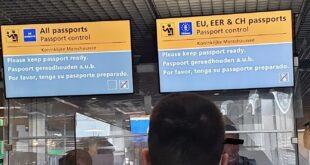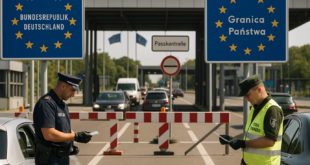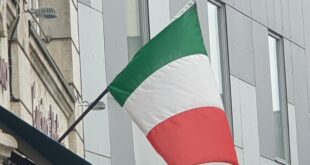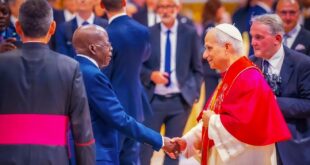Kole Odutola is a Bonnections friend, US-Nigerian poet and development communications scholar, who teaches Yoruba at the University of Florida, Gainsville. He writes about his experiences at Bonn’s first sustainabilty bar camp which took place on 25 June.
Let me start this very brief note about what I saw and what impressed me from the choice of the venue and go on to tell you about the way the meeting was structured and maybe end with one recommendation for the organizers.
One report about the gathering states: “There were around 270 participants and 30 sessions presented during the sustainability camp which took place on Friday, 25 June 2016. It was a great opportunity to share experiences and network with likewise social change agents. The audience consisted of different generations, backgrounds, all in passionate discussions, developing new concepts, re-shaping old ones, sharing knowledge to deepen their perspectives and exploring avenues to break down barriers which can create transparency, common solutions and better ways of organizing.”
Personal Notes
The sustainability camp, sponsored by the government funded agency Engagement Global, took place in Germany last Friday and I travelled by the night bus from London Victoria to Bonn. The various people I had the pleasure of interacting with more than made up for the pain of sitting in one place for over 13 hours. I was even lucky to sit next to Nora, who loves Nigerians and Yoruba foods, she even likes pepper. Her story is for another day!!
So I arrived at BaseCamp not too dazed but tired and happy that my mistake in booking the bus did not hinder my early arrival. I asked the sweet lady at the reception how much it will cost to take a shower and she says with a smile “oh no we will not charge you for a shower” The receptionist pointed me to a man who in turn directed me to the creatively designed toilet on one side and shower room on the other. At this point I could not fail to think about Florida or even the London Victoria station where it cost 20p just to piss (now it has been adjusted for inflation by 10p!!). I had a quick shower and change of clothes ready for I did not really know what…
If it is Germany, then be sure starting on time will not be up for any debate. The program started promptly with Sascha of Bonn.Digital who was one of the brains behind this event introducing other members and sponsors of the day’s event. Would you blame me if I expected a keynote speaker? There was none and no inviting anyone to a low or high table. The only downside thus far was as expected that he spoke German but everything sounded Greek to me. Thanks to Sandra who sat next to me and who constantly furnished me with translations of what she thought were important.
In any case the idea behind the meeting was to have as many people in a conducive space sharing ideas about what matters most to them as it relates to sustainability. Sessions were planned on the spot and spaces and times allocated in a very smooth manner. I was limited by my inability to communicate in German and this meant I had very few sessions I could attend.
The session on communicating sustainability drew a very sizeable group of active practitioners in the business of shaping public opinion with the expectation of behavioral changes. The format was very simple, a facilitator introduced the subject to us by laying down what he thought would be the best way to achieve results.
There was a leaflet by Femnet that served as a case study for us; the idea was to take a look at it and see what good points we can learn about cross-cultural communication, effective storytelling, management of perception before engaging the public. In short, what do the audience/recipients of the message think about the subject or the sender of the message before embarking on a campaign of any sort. It must be recognized that in communication there is the concept of commune, without creating a commune or rapport with the people there may not be effective communication. Finally we agreed that there should be means of evaluating the entire communication project in a way that can make explicit the lessons learned and errors to avoid in the future.
Unfortunately the Femnet case study did not meet up to the expectation of most participants who spoke about the leaflet. Ms Tamara observed that some communication campaigns leave her bleeding without pointing to what can be done to remedy the situation that called for the message created. To redeem the direction the session was heading; there was a call to participants at the session to share their experiences of what worked and particularly projects that did not achieve their set goals.
A lady from Deutche Welle Academy spoke about a recent campaign on Heroes of Free Speech. According to her, the intention was to tell success stories through individuals and not to project their own organization. The strategy worked because most readers could relate to the passionate stories of the individuals featured in the materials produced. Another particpant also contributed to the session by sharing her knowledge of working in the area of communication in various countries on the African continent and now presently with refugees in Bonn. To her those who send messages must be ready to walk the talk and not just analyze situations but be ready to take action or ask the readers or viewers to take concrete action about what is at stake. The take away for me from this session was a hand-written note that said “BarCamp-SDSGs + Sustainability is more than goals — it is community action. Change is possible and happening people are [to be encouraged] to walk their talk.”
A couple of hours after this session, it was time to hold my “I pledge something” session. It was not a hugely popular session as it attracted less than a dozen attendees. The main objective of the session was to encourage participants to do something about what they learned or follow up on issues brought up during the one-day meeting. Here below are samples of what participants pledged to do after the meeting:
(1). “I pledge to start and share a list of ‘sustainable City tours.
Share: Look up & share the sustainability strategy of Bonn City Hall.”
(2). “Share knowledge in open and inspiring atmosphere”
(3). “I will tell my boss that he has to go to the next NachhaltigkeitsCamp”
(4). “I pledge to follow up with people and invite them to share their stories and help make initiatives more visible”
(5). “I pledge to participate in the movement Bonn in wandel=Transition Bonn [or transition movement in your town]” Read more about this idea at https://www.transitionnetwork.org/
(6). “I pledge to create ‘snack’ content for social media to spread awareness about NCBN16/sustainability”
(7). “I pledge to tell 10 of my friends about this camp and encourage them to do something similar in their own countries”
(8). I pledge to start visualizing topics and words I use for my communication on sustainability—to also follow-up with people and initiatives and share their stories with a wider audience
I pledge to share with colleagues at the office-to share key facts and impressions via social media.
Conclusion
This is one very cool experience for me. I got to watch at very close quarters a different way of organizing a meeting where people of passion are gathered. (Watch video of the gathering.) The venue of the meeting spoke volumes and the volumes of ideas gathered cannot be quantified. If I had only one recommendation for the organizers it would be to reserve the very last hour for representatives of organizations to discuss how each of them can collaborate with each other on on-going projects or those in their planning stages.
There is no doubt that the world still has a large army of foot soldiers willing and ready to get their feet dirty in the cause of the earth. So much is happening at the same time in small spaces that need greater exposure.
Now I know that a camp could be an acronym for “Come And Meet People”. I did meet different persons doing wonderful things in their own unique ways
 THE AFRICAN COURIER. Reporting Africa and its Diaspora! The African Courier is an international magazine published in Germany to report on Africa and the Diaspora African experience. The first issue of the bimonthly magazine appeared on the newsstands on 15 February 1998. The African Courier is a communication forum for European-African political, economic and cultural exchanges, and a voice for Africa in Europe.
THE AFRICAN COURIER. Reporting Africa and its Diaspora! The African Courier is an international magazine published in Germany to report on Africa and the Diaspora African experience. The first issue of the bimonthly magazine appeared on the newsstands on 15 February 1998. The African Courier is a communication forum for European-African political, economic and cultural exchanges, and a voice for Africa in Europe.
































